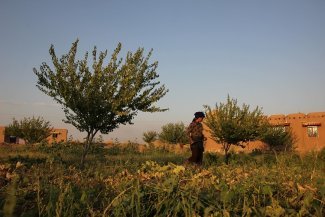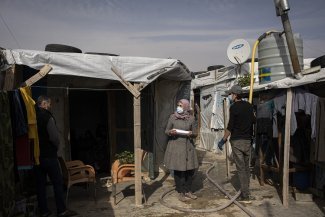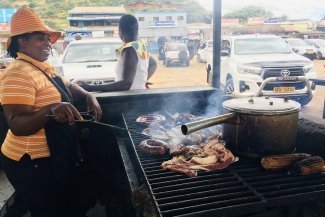Nicole is one of the only women working at her company, which provides services for the fishing industry in Port Victoria, Seychelles. The majority of jobs in the industry are still held by men.
Acquiring new skills, enriching social relations and, above all, achieving a degree of financial independence: these are just some of the benefits that women around the world seek through access to decent employment.
However, according to a 2018 report by the World Bank, 2.75 billion women do not have the same employment opportunities as men. This is due in particular to the fact that “104 economies around the world have some form of job restrictions on women’s work, for instance in industries such as mining, manufacturing, construction, energy, agriculture, water and transportation,” as well as to persistent sexual harassment in the workplace and restrictions on freedom of movement, all of which represent obstacles to women’s participation in social and economic life.
The return of the Taliban in Afghanistan has been a terrible setback for Afghani women and a cruel example of opportunity being deprived.
“Women have been barred from working most jobs […] The Taliban’s all-male cabinet excludes women from political participation and the government has shut down the Ministry of Women’s Affairs,” says Alessandra Bajec in an article for Equal Times. “I have a family that I have to look after. How can we survive? My husband is sick, he can’t work and we have bills to pay,” says Amina, an education assistant, in an interview with Al Jazeera.
From the Covid-19 pandemic, to the serious economic crises facing countries like Venezuela and Lebanon, to the wars raging in Ukraine and Sudan, whenever things get bad it is always women who suffer the most.
This is because, as studies have consistently shown, women earn less than men, work in more insecure jobs, have fewer savings and have less access to land ownership.
Women are additionally expected to take on the unpaid tasks of raising children, running households and supporting elderly or sick family members. They typically encounter far greater difficulty reconciling work and family life than do men.
In order to reduce such inequalities and combat poverty, it is crucial that governments and socio-economic actors increasingly focus their attention on empowering women and removing the obstacles they continue to face. It may, for example, be necessary to completely reconsider working conditions and pay in professions that are highly ‘feminised,’ such as the care professions and the subcontracted garment industry.
To explore these issues, Equal Times has put together a selection of articles from its archives which offer both solutions and inspiration.
—
Syrian women make advances in the face of war
By Moussa Al Jamaat and Ayham Al Sati
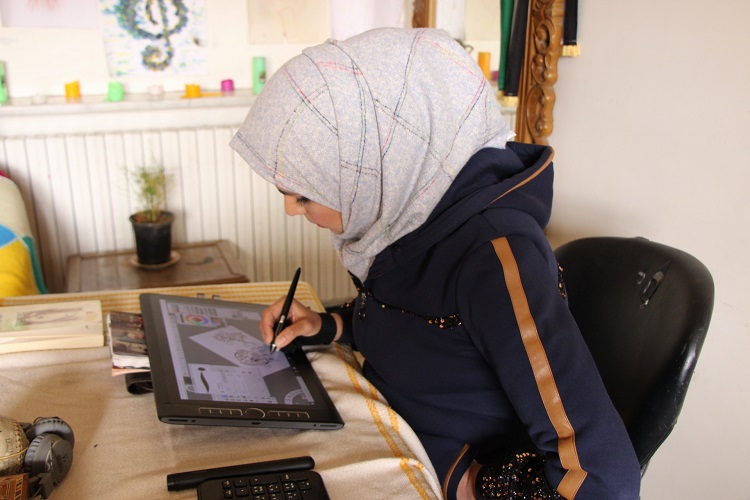
Pictured here is the Syrian cartoonist Amani Al-Ali, who has broken barriers in a profession dominated in her country (and region) by men.
[...] According to UN statistics, 90 per cent of the Syrian population lives below the poverty line, with the local currency plummeting and the exchange rate to the US dollar increasingly unfavourable: last March, US$1 was equivalent to 4,500 Syrian pounds according to official exchange rates. This has a direct impact on families, as the cost of living is rising and incomes are not keeping pace.
Many women have responded by launching their own businesses to support their families. Ruba Muhammad’s restaurant is one of them. Originally from Aleppo and displaced to the city of Jarabulus, Muhammad, 40, lost her husband in the Russian campaign in her home city and is now the breadwinner for her six children. [...]
Read the full article on Equal Times
In the DRC, the production of reusable sanitary pads is improving hygiene and empowering women
By Moïse Makangara
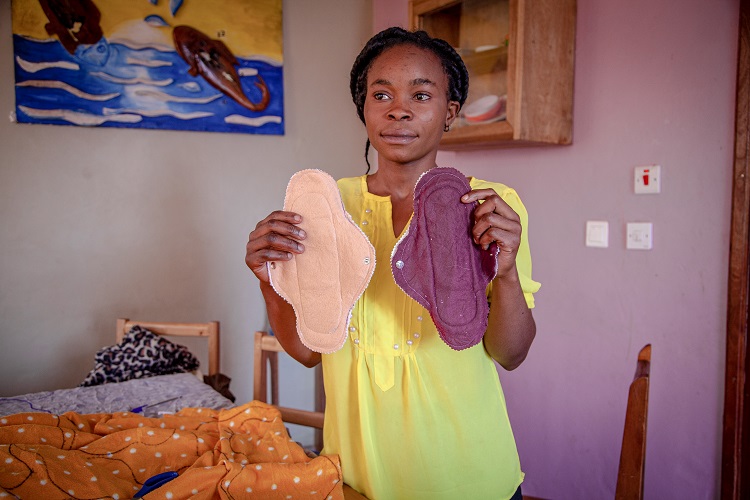
Divine Ntakobajira, a seamstress for the Uwezo Afrika Initiative, displays two Maisha Pads ready for use. September 2021, Bukavu, DRC.
[...] In the DRC, access to sanitary towels remains a headache for women. According to a U-Report survey, 31 per cent of respondents considered lack of money to be the main difficulty they faced during their periods.
For the United Nations Population Fund (UNFPA), “limited access to safe ways to manage menstrual hygiene and to medication for pain limits women’s and girls’ employment opportunities.” [...]
Read the full article on Equal Times
After fleeing violence in Afghanistan, carpet weaving provides refugee women with a meagre but vital lifeline in Pakistan
By Mahwish Qayyum
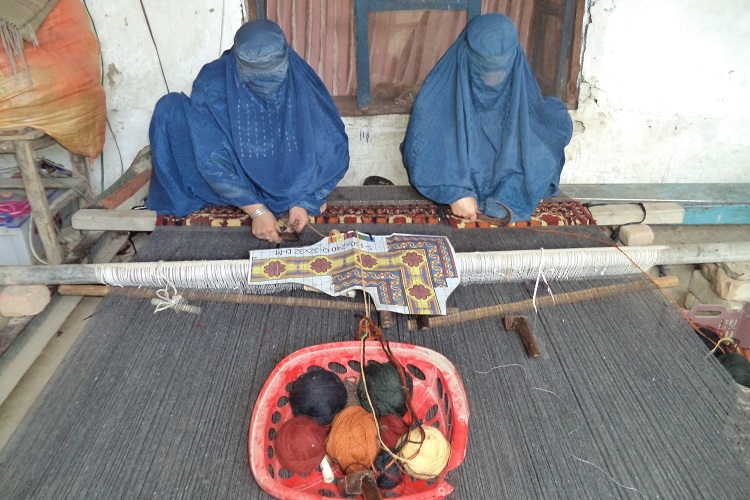
In this photo taken on 16 October 2020, Jumma Gul, right, holds a sickle-like tool while weaving a carpet with her sister-in-law at her home in the Khurasaan refugee camp in Peshawar, Pakistan.
[...] With around 1.42 million Afghan refugees registered in Pakistan and an estimated 800,000 undocumented Afghans in the country, Pakistan has one of the largest refugee populations in the world, of which almost half (47 per cent) are women and girls. Like many of the refugees that have sought sanctuary in Pakistan, Jumma left everything behind. The only asset that she brought with her was the centuries-old craft of carpet weaving, which today provides a valuable, if insufficient, livelihood for many Afghan women refugees. [...]
Read the full article on Equal Times
A lack of decent jobs and the gender wage gap are impoverishing female-headed households in Venezuela
By María de los Ángeles Graterol
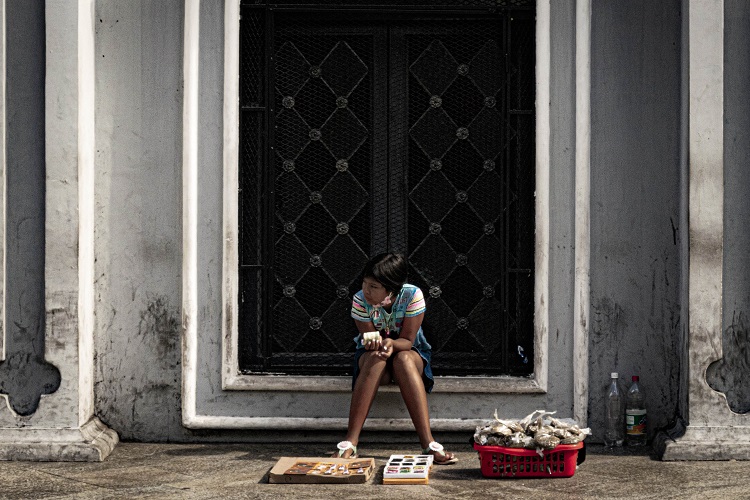
Venezuela’s ongoing humanitarian crisis coupled with the pandemic have exacerbated female poverty in the country.
“Women are essential to our society. Simply put, it wouldn’t exist without them. We know that women have major tasks in life: carrying, giving birth to and raising children”. As Venezuelan President Nicolás Maduro sees it, these are the primary responsibilities of Venezuelan women. He has even gone so far as to order them to “have six children” for “the good of the country”. But being a woman in the Caribbean nation comes at a very high cost that has only increased since 2015 due to Venezuela’s complex humanitarian emergency and the Covid-19 crisis.
In 2014, a year after the country entered into economic recession, some Venezuelan women who had previously been inactive in the labour market were forced to take on precarious jobs to put bread on the table. [...]
Read the full article on Equal Times
Women’s right to land is the foundation for a better tomorrow
By Kalpana Karki et Andita Listyarini
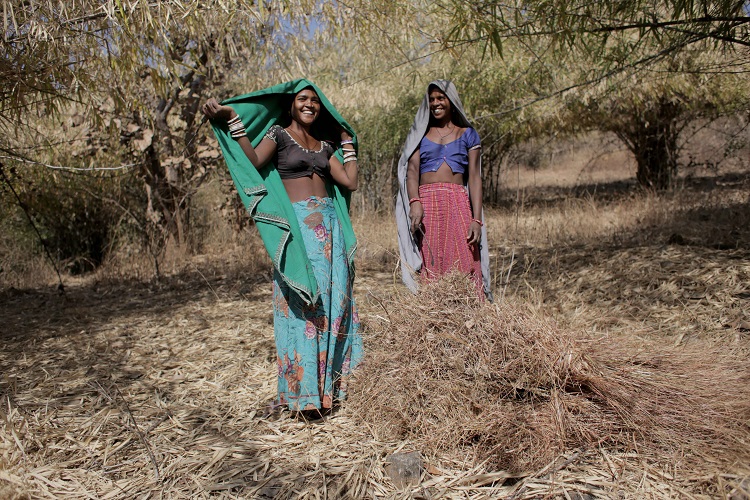
Secure land rights for women and girls are linked to increased women’s leadership and autonomy, enhanced economic opportunities, better social security, safety and dignified societal standing.
Secure land rights for women and girls are linked to increased women’s leadership and autonomy, enhanced economic opportunities, better social security, safety and dignified societal standing. This helps build thriving and resilient households and communities with improved incomes, better child nutrition, greater educational attainment for girls, enhanced women’s agency and more sustainable use of natural resources.
However, in many Asian countries, women’s access to and decision-making power over land, in the sense of ownership, use, and tenure security, is limited and often hindered by existing social norms and patriarchal attitudes. This is further exacerbated by restrictive policy instruments and legal frameworks and/or weak law enforcement at the local and national levels. [...]





